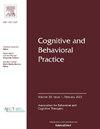mdma辅助接受和承诺治疗创伤后应激障碍:新方法的基本原理
IF 2.9
3区 心理学
Q1 PSYCHOLOGY, CLINICAL
引用次数: 0
摘要
3,4-亚甲基二氧基甲基苯丙胺(MDMA)辅助心理治疗是治疗创伤后应激障碍(PTSD)的一种非常有效和持久的方法。然而,美国食品和药物管理局拒绝了mdma辅助心理治疗目前的形式,表达了对缺乏标准化和经验基础的心理治疗方法的担忧。这突出了需要考虑替代的心理治疗方法,以结合MDMA治疗创伤后应激障碍。我们建议基于证据的认知行为疗法,接受和承诺疗法(ACT),特别适合与MDMA治疗PTSD。具体而言:(1)MDMA的主观效应直接支持关键的ACT过程;(2) ACT方法可以帮助患者为MDMA给药做准备,提高疗效和耐受性的可能性;(3) ACT提供了一种“过程导向”的方法,在MDMA给药期间协助治疗师和支持患者;(4) ACT可能有助于优化MDMA体验的整合,以塑造适应性功能并提高治疗后的生活质量。我们提供了如何使用ACT方法实现这些目标的例子。总之,我们相信ACT提供了一个高度可扩展的、结构化的、灵活的、基于证据的框架,非常适合与MDMA结合,作为创伤后应激障碍的新治疗方法。本文章由计算机程序翻译,如有差异,请以英文原文为准。
MDMA-Assisted Acceptance and Commitment Therapy for Posttraumatic Stress Disorder: Rationale for a New Approach
There is promise for 3,4-methylenedioxymethamphetamine (MDMA)-assisted psychotherapy as a highly effective and durable treatment for posttraumatic stress disorder (PTSD). However, the Food and Drug Administration rejected MDMA-assisted psychotherapy in its current form, expressing concerns about the lack of standardization and empirical basis of psychotherapy methods. This highlights the need to consider alternative psychotherapeutic approaches to integrate with MDMA for the treatment of PTSD. We propose that the evidence-based cognitive behavioral therapy, acceptance and commitment therapy (ACT), is particularly well-suited to be paired with the administration of MDMA for PTSD. Specifically: (1) the subjective effects of MDMA directly support key ACT processes; (2) ACT methods could help prepare patients for MDMA administration, increasingly the likelihood of efficacy and tolerability; (3) ACT provides a “process-directed” approach to assist the therapist and support the patient during MDMA administration sessions; and (4) ACT may help optimize the integration of MDMA experiences to shape adaptive functioning and promote quality of life following treatment. We provide examples of how ACT methods could be used for many of these goals. In sum, we believe ACT provides a highly scalable, structured yet flexible, evidence-based framework well-suited to be integrated with MDMA as a new treatment approach for PTSD.
求助全文
通过发布文献求助,成功后即可免费获取论文全文。
去求助
来源期刊

Cognitive and Behavioral Practice
PSYCHOLOGY, CLINICAL-
CiteScore
4.80
自引率
3.40%
发文量
118
审稿时长
84 days
期刊介绍:
Cognitive and Behavioral Practice is a quarterly international journal that serves an enduring resource for empirically informed methods of clinical practice. Its mission is to bridge the gap between published research and the actual clinical practice of cognitive behavior therapy. Cognitive and Behavioral Practice publishes clinically rich accounts of innovative assessment and diagnostic and therapeutic procedures that are clearly grounded in empirical research. A focus on application and implementation of procedures is maintained.
 求助内容:
求助内容: 应助结果提醒方式:
应助结果提醒方式:


